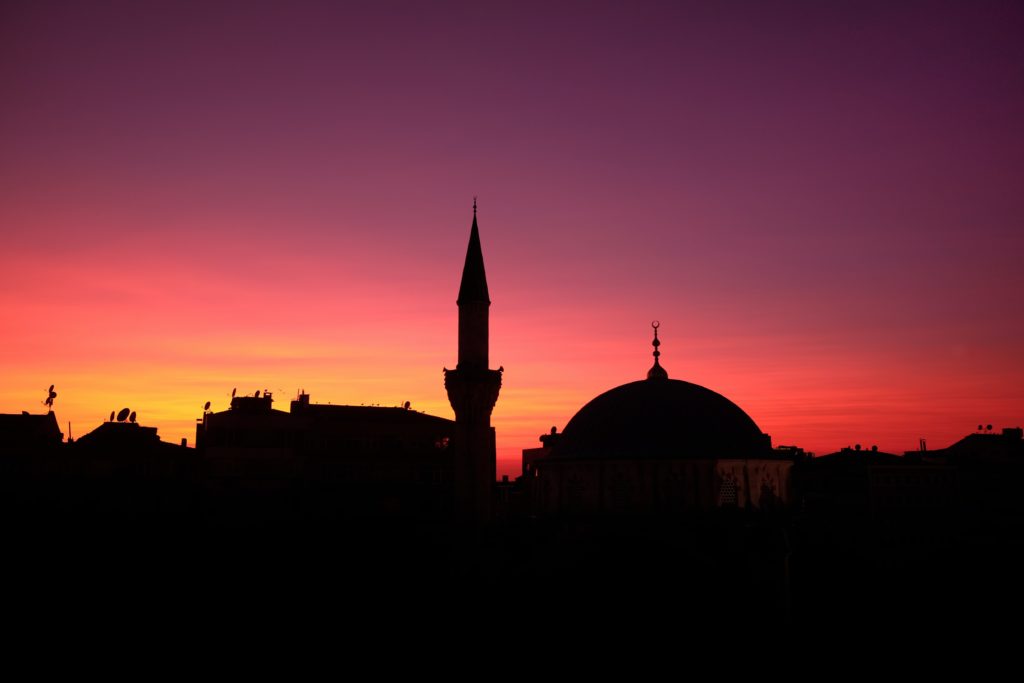One of the biggest changes I wanted to make as the editor for Cape {town} Etc is driving the “Etc” on our platform – being inclusive in every respect. With many colleagues and friends fasting, I’ve been constantly catching myself in a cloud of ignorance, writes Robyn Simpson.
Just this weekend, I went to grab some dinner at a local takeaway joint and saw that the line was unusually long. A kind gentleman approached and mentioned that everybody was breaking fast, and that I should rather try to come back in a few minutes to avoid a long wait.
My response? “Congratulations on your fast, you made it!” Imagine my embarrassment when I realised it was not yet in fact the end of Ramadan, as I had so easily assumed.
Ever wanted the ground to swallow you whole? Tell me about it. Luckily for me, Cape {town} Etc columnist Gasant Abarder is coming to the rescue.
Here’s everything you need to know about Eid, but was too afraid to ask.
What is Eid?
Eid-ul-Fitr is the celebration of the first day of the Islamic lunar calendar month of Shawaal. It marks the end of the fasting month of Ramadan for Muslims. Fasting cannot exceed 30 days and Eid is declared on the sighting of the new moon with the naked eye, usually by a crescent observer society.
How is Eid celebrated in Cape Town?
There is a significant number of Muslims in Cape Town. Traditionally, there is a special congregational prayer and lecture at all mosques. It may be slightly different this year because of COVID-19 restrictions and social distancing. So, this year, prayers may happen in shifts and those who are ill, have symptoms of COVID-19, or have co-morbidities are advised to stay home.
After mosque, many visit graves of loved ones to pay respects – although numbers are restricted during lockdown. If we were COVID-19 free, families would visit each other as they hadn’t been in contact during the month of fasting. It is tradition to give young children money as a reward for fasting.
And the food?
The food is decadent and those who cook in the family, pride themselves on the dishes they prepare for Eid day. Lunch is usually the main course of the day. But before we get there, it is customary to have breakfast before mosque – usually corn beef and pie – as a signal of the end of fasting.
There is also an array of deserts, cakes and other treats prepared for visitors under normal non-COVID circumstances. In Cape Town, the predominant dishes are Cape Malay-style cooking for lunch. Lunch menus range from anything from roast leg of lamb, roast chicken and sides, lamb curry, butter chicken, breyani, akhni, a steak dish called Mafroo, a sweet and spicy lamb dish called ‘Denningvlei’s or seafood.
What do you wear on Eid?
The Prophet (Peace Be Upon Him) prescribes that you wear your finest clothing on the day. In Cape Town, this is taken literally, more so than most places where Eid is celebrated. It is recommended for men to wear traditional prayer robes and fezzes and women to wear hijab and fashion, now known as modesty wear, like burkahs or pardah. It is fine to dress like this for the day. However, the younger crowd later dress to the nines with often tailor-made outfits. Young women wear beautiful garments and young men get suited and booted.
How do you greet someone on Eid day?
It’s not Hosni Mubarak, silly! You wish someone with a handshake greeting (but not recommended during COVID) and simply say “Eid Mubarak”.
Anything else?
Yes, very importantly: every Muslim by the means is required to give compulsory charity called ‘Fitrah’. It is a prescribed minimum monetary amount but not limited to the minimum. This can be given to a charity organisation doing relief work, an individual like a widow or someone who is unable to work due to illness.
A number of relief organisations, like Nakhlistan, cook hundreds of pots of food to feed the needy on Eid day. And NPOs like Gifts of the Givers prepare food hampers for those less fortunate.
And finally, a hot tip for young Muslims celebrating Eid: Don’t let your older brother count your money!
Picture: Unsplash

